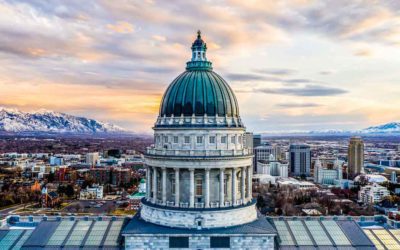
Written by William C. Duncan
March 30, 2023
A recently proposed move by the Biden Department of Education resulted in significant public pushback. After proposing to repeal in its entirety a Trump administration rule that “required public colleges and universities to give faith-based student organizations the same resources as secular groups” or risk losing federal education grant funding, the department was flooded by nearly 60,000 public comments. A large portion of these comments appear to be opposed to the move.
But public comments from some organizations representing higher education institutions argue the protection for religious student groups is unnecessary. Given the growing secularization among American citizens – highlighted by the oft-noted rise in the number of Americans describing their religious affiliation as “none” – the logic of the university organizations leads to the question of whether the religious freedom protections in the First Amendment are still relevant.
When the First Amendment was ratified in 1791, its specific protection of the free exercise of religion was likely uncontroversial. The same right was protected in state constitutions, and leading statesman of the time spoke highly of the importance of religious observance.
The most famous example is a statement by John Adams:
We have no government armed with power capable of contending with human passions unbridled by morality. … Avarice, ambition, revenge … would break the strongest cords of our constitution as a whale goes through a net. Our Constitution was made only for a moral and religious people. It is wholly inadequate to the government of any other.
Although the formal protections of religious practice are retained in the federal Constitution (and every state constitution), the cultural backdrop is different today. Beyond the religious disaffiliation trends previously noted, another example is a recent Wall Street Journal poll that showed a precipitous decline in the number of Americans who said religion was “very important” since 1998.
So, do we still need constitutional protection for religious practice? Part of the answer is apparent in the continued conflicts over religious freedom. But another aspect is the question of whether religion itself is worth protecting. What is it about religious faith that makes it vital to individuals and the community? This was the topic of a panel at the Family, Religion, Education and Entrepreneurship Forum co-sponsored by the American Enterprise Institute and Sutherland Institute.
The panel, “Maximizing the Social Benefits of Religious Participation,” discussed ways in which individuals and society generally benefit from religious engagement.
Kathleen Porter-Magee, the superintendent of Partnership Schools, a network of Catholic schools in New York City, discussed the powerful benefits to society made by religious organizations and people of faith, particularly in the context of education. She pointed out that these social benefits can’t just be outsourced to other institutions:
There is no substitute for a thriving religious institution – churches, schools, charities and more – for the health of a community. The value these institutions provide goes deeper than the practical programs they offer and that’s why we can’t simply replace them with values-neutral government programming.
Corey Hodges, lead pastor of The Point Church, a multicultural community in Salt Lake City, offered a uniquely valuable insight from his experience. He addressed the concern that religion is divisive. He noted that the opposite is true – that faith brings people together “with shared value systems” and “causes us to look upward, outward, and also inward,” and that this allows us to connect in communities.
In coming weeks, we will share more of the insights from the panel, which demonstrated that the personal and social benefits of religion are still vital to Americans. Those benefits will not, however, be experienced unless religious organizations and people of faith are given room to live their beliefs. That room is provided and secured by the First Amendment. It is still important today – in fact, perhaps more important than ever.
More Insights
Read More
Is California’s minimum wage hike a mistake?
Is raising the minimum wage a good tool to help low-income workers achieve upward mobility? That’s the key question at the heart of the debate over California’s new $20 an hour minimum wage law for fast food workers.
Why is Utah at odds with Justice Department over treatment of gender-dysphoric prisoner?
Lawsuit illustrates a little-known practice of federal agencies – giving various forms of “guidance” which are not supposed to be legally binding. The practice raises serious legal and constitutional questions.
What would a parent-teacher ‘handshake’ look like in Utah?
This partnership does not allow either party to pass blame entirely to the other. There is no scapegoat, only opportunities for either party or both to work on the factors within their scope.


